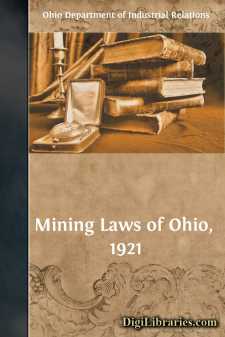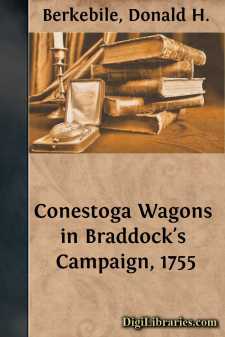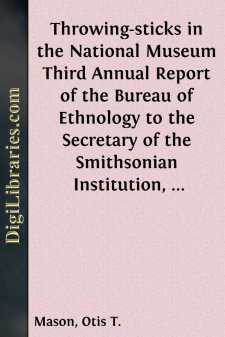Non-Classifiable
- Non-Classifiable 1768
Non-Classifiable Books
Sort by:
RELATING TO CHIEF INSPECTOR OF MINES AND DISTRICT INSPECTORS OF MINES. Mining Laws of Ohio Sec. 898. Repealed. (Appointment of chief.) Sec. 899. [Qualifications of chief inspector of mines.] No person shall be appointed chief inspector of mines unless he has a competent knowledge, insofar as such sciences relate to mining, of chemistry, the mineralogy and geology of this state, a practical knowledge of...
more...
by:
John Todhunter
SHELLEY AND THE MARRIAGE QUESTION. Now that marriage, like most other time-honoured institutions, has come to stand, a thing accused, at the bar of public opinion, it may be interesting to see what Shelley has to say about it. The marriage problem is a complex one, involving many questions not very easy to answer offhand or even after much consideration. What is marriage? Of divine or human...
more...
by:
Allen Johnson
CHAPTER I The dramatic moments in the colonizing of coastal New England have passed into song, story, and sober chronicle; but the farther migration of the English people, from tide-water to interior, has been too prosaic a theme for poets and too diverse a movement for historians. Yet when all the factors in our national history shall be given their full value, none will seem more potent than the...
more...
by:
Sanger Brown
CHAPTER I Simple Sex Worship Psychiatry, during recent years, has found it to its advantage to turn to related sciences and allied branches of study for the explanation of a number of the peculiar symptoms of abnormal mental states. Of these related studies, none have been of greater value than those which throw light on the mental development of either the individual or the race. In primitive races we...
more...
More than 200 years have passed since the Pennsylvania farm wagon, the ancestral form of the Conestoga wagon, first won attention through military service in the French and Indian War. These early wagons, while not generally so well known, were the forerunners of the more popular Conestoga freighter of the post-Revolutionary period and also of the swaying, jolting prairie schooners that more recently...
more...
PICKWICKIAN MANNERS AND CUSTOMS. No English book has so materially increased the general gaiety of the country, or inspired the feeling of comedy to such a degree as, “The Pickwick Club.” It is now some “sixty years since” this book was published, and it is still heartily appreciated. What English novel or story is there which is made the subject of notes and commentaries on the most...
more...
by:
Charles Munde
PREFACE. In offering this pamphlet to the Public in general, and to Parents and Physicians in particular, I have no other object than that of contributing my share to the barrier which the medical profession has attempted, for more than two hundred years, to raise against the progress of the terrible disease which carries off upon an average, half a million of human beings annually. All the efforts of...
more...
by:
Otis T. Mason
I.—THROWING-STICKS IN THE NATIONAL MUSEUM. By Otis T. Mason. Col. Lane Fox tells us there are three areas of the throwing-stick: Australia, where it is simply an elongated spindle with a hook at the end; the country of the Conibos and the Purus, on the Upper Amazon, where the implement resembles that of the Australians, and the hyperborean regions of North America. It is of this last group that we...
more...
by:
J. G Patterson
INTRODUCTION Emile Zola was born at Paris on 2nd April, 1840. His father, Francois Zola, was a man whose career up to that time had not been a success, though this was not due to any lack of energy or ability. Zola pere was of mixed nationality, his father being an Italian and his mother a Greek, and it is not unlikely that his unrest and want of concentration were due to the accident of his parentage....
more...
by:
Anonymous
The Royal Oak There is in Shropshire a fine oak-tree which the country people there call the "Royal Oak". They say it is the great-grandson, or perhaps the great-great-grandson of another fine old oak, which more than two hundred years ago stood on the same spot, and served once as a shelter to an English king. This king was Charles II, the son of the unlucky Charles I who had his head cut...
more...











